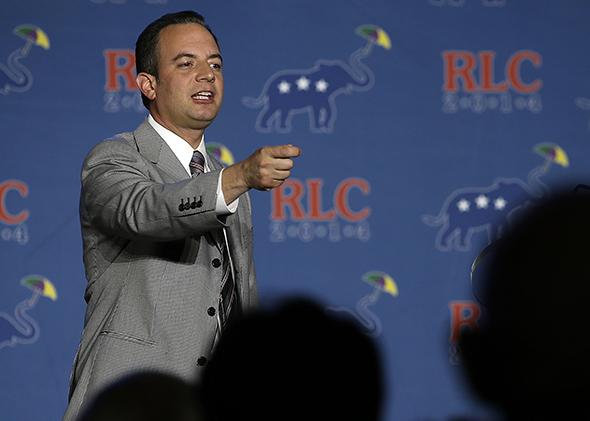It sounds like a plot point from a bad ’90s cyberthriller, but my email inbox might have a sense of humor.
Let me explain. On Tuesday morning, I received an alert from the Brennan Center for Justice, announcing its new report on the prevalence of voting restrictions. In the four years since the 2010 election—when the GOP swept state houses across the country—22 states have passed restrictive voting measures, from voter identification laws to limits on early and weekend voting. While some restrictions were overturned by the courts or weakened by the Justice Department, others remain on the books, with provisions set to take effect before the midterm elections. “In 15 states,” notes the Brennan Center, “2014 will be the first major federal election with these new restrictions in place.”
Despite Republican rhetoric—which defends these measures as justified to stop “voter fraud,” to protect “voter integrity,” and to ensure “fairness” in the system—it’s clear that partisanship has a lot to do with the proliferation of voter restrictions. As a recent study from the University of Massachusetts in Boston detailed, restrictions were more likely to pass “as the proportion of Republicans in the legislature increased or when a Republican governor was elected.” Likewise, it’s obvious from the pattern of restrictions that race plays a part. “Of the 11 states with the highest African-American turnout in 2008, 7 have new restrictions in place,” reports the Brennan Center. What’s more, “nearly two-thirds of states—or 9 out of 15—previously covered in whole or in part by Section 5 of the Voting Rights Act because of a history of race discrimination in voting have new restrictions since the 2010 election.”
In case you think this is some weird coincidence, it’s worth going back to the UMass–Boston, which finds that “the proposal of restrictive voter-access legislation has been substantially more likely to occur where African-Americans are concentrated and both minorities and low-income individuals have begun turning out at the polls more frequently.” In other words, Republican voter restrictions are most likely in places where black people vote the most. And there’s also evidence that legislative support for voter identification is motivated, in part, by racial bias.
Which brings us back to my email.
After the Brennan Center alert, the next message in my inbox was a press release from the Republican National Committee. The subject line? “RNC Chair Reince Priebus To NABJ.” The NABJ, for those unaware, is the National Association of Black Journalists, the largest organization of journalists of color in the nation. Priebus is visiting—along with Democratic National Committee Chairwoman Rep. Debbie Wasserman Schultz—as a speaker for the NABJ’s annual convention, where he will speak on the GOP’s outreach to black Americans. “I … look forward to discussing our ongoing efforts to engage black voters, expand the dialogue in communities across the country and inform the very journalists who help shape the views of a very important constituency,” he said.
By now, I’m sure you see the humor here. Announcement one: Republican-pushed voter restrictions target blacks and other minorities. Announcement two: Republican leader plans to talk outreach with black journalists who—among other things—report on voter restrictions.
With that said, you don’t need a fortuitous email coincidence to make this connection. Of everything Republicans have done to alienate themselves from the vast majority of black Americans, voter restrictions—and voter identification in particular—stand as the most egregious offense. Indeed, the GOP push for ID requirements in 2012 sparked a backlash in black communities across the country. “There are forces at work that don’t want you to vote,” said one ad in Cleveland before the election, “and will do anything they can to make it difficult for you to vote. You’re stronger, you’re smarter than that.” Ohio joined Pennsylvania and Florida as voter ID states with higher-than-normal black turnout in 2012, which suggests a relationship: Angered by attempts at voter suppression, black voters went to the polls in huge numbers, causing the long lines that defined coverage of that Election Day.
Between the RNC’s new investments in minority engagement and his visits to historically black colleges, I have no doubt that Priebus is sincere about outreach to black Americans. At the same time, the bulk of the Republican Party has committed itself to shrinking the electorate of low-income and minority voters as an alternative to growing beyond its base of aging whites. Which is to say that, before speaking to the NABJ or any other group of black Americans, the RNC chairman might want to turn his attention to his fellow Republicans and try to push them away from their current path.
Voters are more likely to listen to your appeals—and even take them seriously—when they don’t think you’re trying to keep them from casting ballots.
